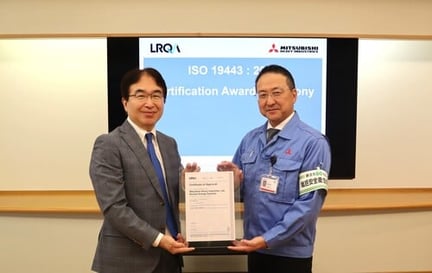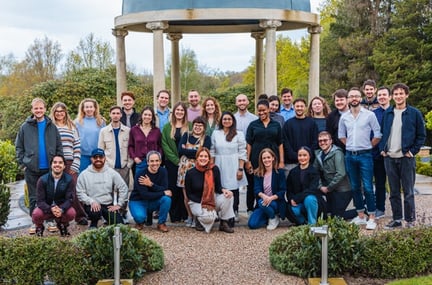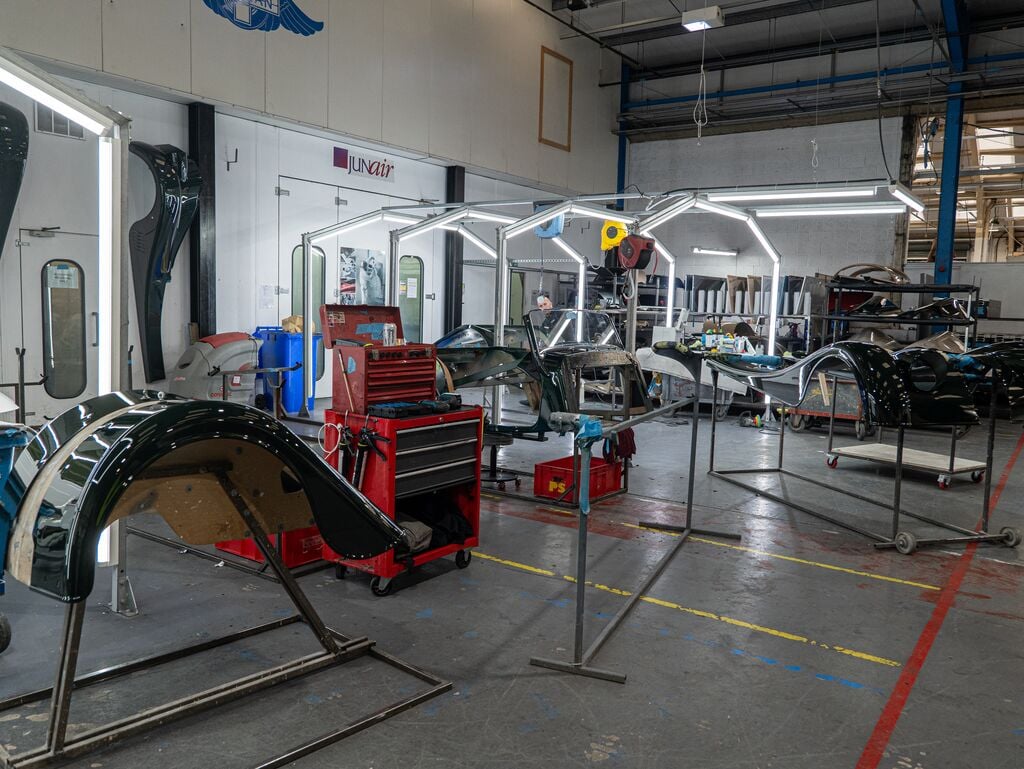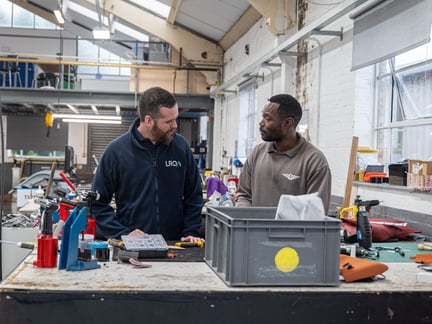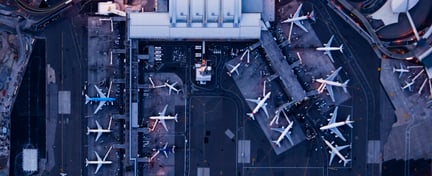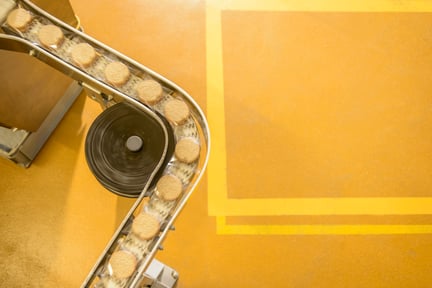
ISO 9001:2015 Quality Management System (QMS) Certification
QMS certification and training from industry experts
ISO 14001 FDIS live. ISO 9001 DIS live. ISO 45001 is next.
The world’s most recognised management system standards are being updated, with new requirements, new expectations and a formal transition period on the way. These changes matter.
ISO Transition Club: It's Free to Join
Are you ready to respond? Join our Transition Club.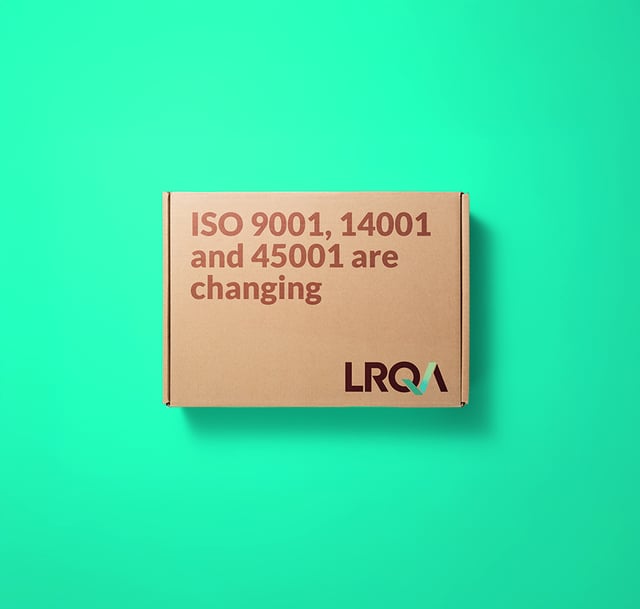
Build trust, reduce risk and strengthen performance through ISO 9001
ISO 9001 is the globally recognised international standard for Quality Management Systems (QMS). It sets out a framework to help organisations consistently deliver products and services that meet customer and regulatory requirements. Over 1 million companies worldwide use ISO 9001 to better understand and meet their client and stakeholder needs and drive performance, making the standard arguably the most important piece of business literature ever written.
Achieving ISO 9001 certification with LRQA demonstrates that your organisation has a robust quality management system in place - one that supports operational control, risk management, customer satisfaction, and continual improvement across the business. Check out the Frequently Asked Questions for information about ISO 9001 and our offerings.
Our ISO 9001 Services
Our team of expert auditors is here to be your partner at every stage of your ISO 9001 certification journey. They can help you demonstrate your commitment to best practices through globally recognised quality management system certification, enhancing your credibility and reliability in the market. Whether you’re starting from scratch, refining an existing QMS, or preparing for the transition to the 2026 version, LRQA offers sector-specific insight, local delivery, and global consistency.
Training
Expand your knowledge of ISO 9001 with our range of courses that have been designed for varying levels of experience and learning styles.
![]()
Gap analysis
An optional service where one of our expert auditors helps you identify any weak areas or non-conformities prior to your formal ISO 9001 audit.
Accredited certification
An independent two-phase approach that provides a clear statement of your capabilities. Accredited certification helps you build trust with stakeholders and win new business.
Integrated audits
In cases where your organisation holds multiple management system certifications, we offer an integrated audit and surveillance programme, allowing you to streamline your processes and ultimately leading to more efficient and cost-effective management systems.
Why ISO 9001 Matters for Your Organisation?
ISO 9001 certification demonstrates that your organisation has established a consistent, high-quality approach to delivering products and services. It codifies your best practices into documented processes, ensuring every team follows the same standards and reducing errors and rework. Certification also signals to customers, regulators, and partners that your quality management system has been independently audited against a globally recognised benchmark. In industries where suppliers must hold ISO 9001 approval to bid, having the certificate opens doors to new contracts and markets.
What Are the Benefits of ISO 9001 Certification?
-
Competitive advantage
Many companies require suppliers and partners to have independent certification to ISO 9001 as a license to tender. And while certification isn’t always a contractual obligation, it will often provide competitive advantage and added credibility, helping to win and maintain trusted business relationships.
-
Business effectiveness and performance
By following the best practice principles found in ISO 9001, organisations can improve their approach to risk management, provide a clear understanding of the internal and external context of their organisation and make a valuable contribution to overall business effectiveness and performance. Accredited certification through a globally trusted and recognised provider such as LRQA is a badge of credibility and professionalism for organisations around the world.
-
Easy integration
ISO 9001 follows the Annex SL framework, the high-level structure for modern ISO Standards. The Annex SL structure ensures consistency and compatibility between the different management system standards and allows for a straightforward and harmonised implementation of multiple standards (integrated management system). ISO 9001 easily integrates with all new and revised ISO management system standards, such as ISO 14001, ISO 45001, and ISO 27001.
ISO 9001:2026 – What’s Changing and How to Prepare
A formal revision of ISO 9001 is in progress, with updated requirements expected in late 2026. These changes may impact how your QMS is implemented, audited, and maintained. LRQA offers early access to briefings, training, and expert guidance to help you plan a smooth transition well ahead of the formal deadline.
ISO 14001 FDIS live. ISO 9001 DIS live. ISO 45001 is next.
The world’s most recognised management system standards are being updated, with new requirements, new expectations and a formal transition period on the way. These changes matter.
ISO Transition Club: It's Free to Join
Are you ready to respond? Join our Transition Club.
ISO 9001:2026 Transition Training
Prepare for the ISO 9001:2026 revision with expert guidance. Start with our Awareness Briefing and take it further with the hands-on Update Workshop.
Training

ISO 9001 revision
The revision of ISO 9001 is officially under way, with the Draft International Standard expected in June 2025 and full publication anticipated in the second half of 2026. While the exact changes are still being shaped, certified organisations should expect updates that will impact how quality management systems are implemented and maintained. Being prepared now means you’ll be ready to transition smoothly when the time comes.
News
Read More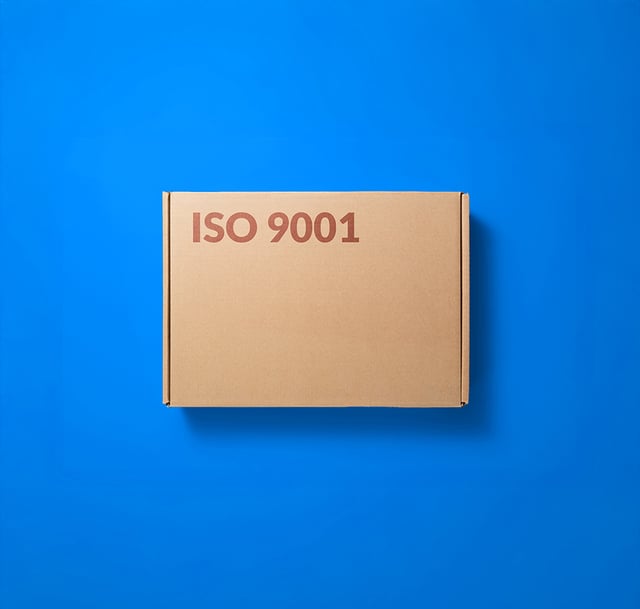
LRQA’s ISO 9001 Certification Process
Navigating ISO 9001 certification involves a structured, five-stage journey from initial gap analysis to ongoing surveillance audits designed to ensure your quality management system meets global standards.
- Gap Analysis & Preparation
Begin by mapping your existing quality procedures against the ISO 9001 requirements. This gap analysis highlights areas where your documentation, work instructions, or quality records fall short. Armed with this insight, you create a targeted action plan—updating procedures, assigning responsibilities, and training staff to close any compliance gaps.
- Implementation & Internal Review
With improvements in place, roll out the revised processes across your teams. Conduct a full internal audit (or mock assessment) to test the effectiveness of your Quality Management System. This exercise verifies that employees understand the new procedures and that records—such as audit logs and corrective-action reports—are accurately maintained.
- Stage 1 Audit (Documentation Review)
Submit your QMS documentation for remote review by the certification body. Auditors will examine your quality manual, process maps, and records to ensure they align with ISO 9001’s clauses. Any minor non-conformities identified at this stage can be resolved quickly to prepare for the main evaluation.
- Stage 2 Audit (Implementation Evaluation)
During the on-site or remote implementation audit, auditors observe your processes in action. They interview personnel, inspect records, and verify that documented procedures are followed in practice. Address any findings promptly to demonstrate your commitment to meeting the standard’s requirements.
- Certification & Ongoing Surveillance
Upon successful completion of both audit stages, you receive your ISO 9001 certificate, valid for three years. To maintain certification, you undergo annual surveillance audits that confirm your QMS remains effective and compliant. These recurring reviews also generate fresh insights for further efficiency gains and risk mitigation.
Why work with us?
Global reach, local support
With clients in over 150 countries and auditors on the ground wherever you operate, we deliver consistent quality and responsive support worldwide, both in person and remotely.
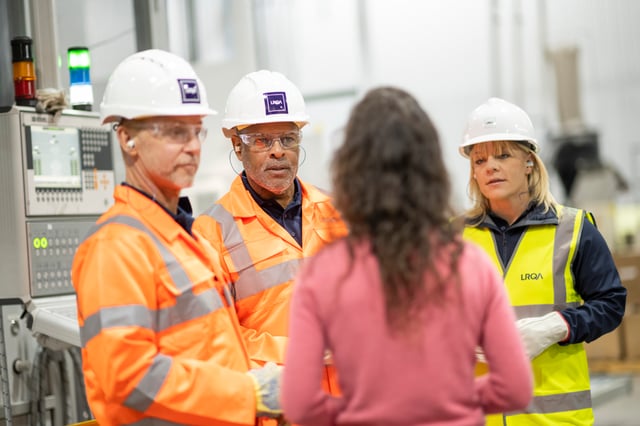
A connected approach to risk
ISO 9001 is a powerful foundation for managing quality and driving improvement. At LRQA, we help you build on that foundation by connecting it with wider business risks, from safety and sustainability to cyber and supply chain, giving you a clearer, more complete view of performance and resilience.
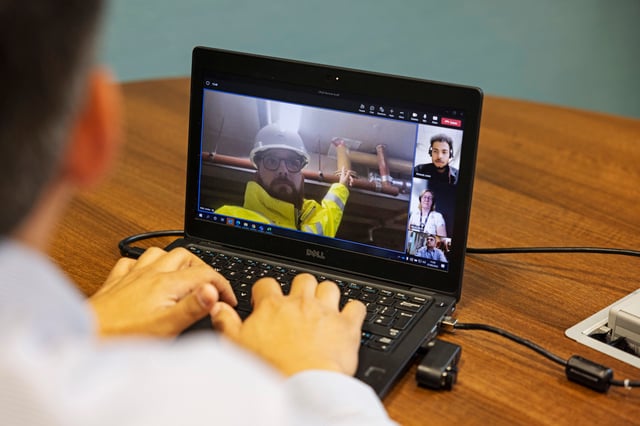
Decades of expertise
LRQA was the first to achieve UKAS accreditation to deliver certification services across multiple standards worldwide. With decades of sector-specific experience, our auditors tailor every audit to your industry, operations and goals.

Focused on you
Our approach is always tailored to your goals. Whether you’re aiming to meet client expectations, access new markets, improve efficiency or support growth, we help you get there, with risk management solutions you can trust.

With a global operation, it’s important that we get both a high-level view of our management system and support at a local level, which LRQA can offer us. The global reach of LRQA means we are confident that we are applying the same high standard of quality across the entire Van Leeuwen Group.
What is ISO 9001?
Designed for organisations of any size and operating in any sector, ISO 9001 is an international management system standard that provides a recognised framework for quality management and continuous improvement. Over 1 million companies worldwide use ISO 9001 to better understand and meet their client and stakeholder needs and drive performance.
What are the benefits of ISO 9001 certification?
Competitive advantage
Many companies require suppliers and partners to have independent certification to ISO 9001 as a license to tender. And while certification isn’t always a contractual obligation, it will often provide competitive advantage and added credibility, helping to win and maintain trusted business relationships.
Business effectiveness and performance
By following the best practice principles found in ISO 9001, organisations can improve their approach to risk management, provide a clear understanding of the internal and external context of their organisation and make a valuable contribution to overall business effectiveness and performance. Accredited certification through a globally trusted and recognised provider such as LRQA is a badge of credibility and professionalism for organisations around the world.
Easy integration
ISO 9001 follows the Annex SL framework, the high-level structure for modern ISO Standards. The Annex SL structure ensures consistency and compatibility between the different management system standards and allows for a straightforward and harmonised implementation of multiple standards (integrated management system). ISO 9001 easily integrates with all new and revised ISO management system standards, such as ISO 14001, ISO 45001, and ISO 27001.
How do I get ISO 9001 certification?
The path that your organisation takes to achieve ISO 9001 certification often depends on your business's size, maturity, and existing approach to managing risk, amongst other factors. But the standard process to becoming ISO 9001 certified includes three main steps.
- Stage 1 Audit – document review and planning: Your auditor will review the design and documentation of your management system – in most cases, this is carried out remotely.
- Stage 2 Audit – evaluating your implementation: Your auditor will evaluate the implementation and effectiveness of your existing QMS in line with the requirements of ISO 9001. If there are no non-conformities, you’ll receive your certification. This stage can be carried out remotely or on-site.
- Promote your ISO 9001 certification: Your certification demonstrates a commitment to internationally recognised best practices and continual improvement – helping you win new business and meet stakeholder demands.
How are ISO audits conducted?
Our services blend remote and on-site audit activities to provide unrivalled insight and expertise. Using secure, remote technology, we can provide a fast and flexible way to maintain your audit schedule, help reduce carbon footprint associated with travel, and minimise health and safety risks for people working on hazardous sites or hard-to-reach areas. Outcomes are consistent with on-site audits, so the integrity of your audit and accredited certification remains exactly the same.
How long is my ISO certificate valid for?
Certificates are valid for 3 years from the date of completing the initial certification process. The certification renewal audit is discussed and planned by the auditor well in advance of the expiration to ensure that the ISO certification continues.
How much does it cost to get ISO 9001 certified?
Certification costs will depend on the size and complexity of your organisation and the maturity of its existing management system. To get a bespoke quote, please fill in the form below and one of our team members will get in touch with all the details you need.
What are the 10 clauses of ISO 9001?
ISO 9001 follows the Annex SL framework and consists of the following 10 clauses:
- Clauses 0 to 3: Introduction, Scope, References, Terms and Definitions
- Clause 4: Context of the organization
- Clause 5: Leadership and commitment
- Clause 6: Planning for the QMS
- Clause 7: Support & resource management
- Clause 8: Operational planning and control
- Clause 9: Performance evaluation
- Clause 10: Improvement actions
What is the difference between ISO 9001 and ISO 14001?
ISO 9001 quality management system (QMS) is the globally recognised management system standard which provides a framework for quality management. ISO 14001 certification is the globally recognised management system standard for environmental management. Like ISO 9001, ISO 14001 provides a framework and continuous improvement for a business’s environmental management system (EMS) and is modelled on the Annex SL framework.
What’s happening with the ISO 9001 revision and how can I prepare?
ISO 9001 is currently undergoing a formal revision, with the final version of the updated standard expected in 2026. Once published, organisations will have a three-year transition period to update their quality management systems in line with the new requirements.
To help you stay ahead, we’ve launched the LRQA Transition Club, a free hub of resources, expert insight, practical guidance and training to support your journey through the changes.

